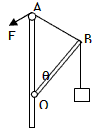Questions 1-4
What is typical of the American campus system?()
A.Students live in halls residence around the university buildings.
B.Students are encouraged to conduct their independent research project.
C.Students first live in halls of residence and then are allowed to move out.
D.Students can share the common rooms with faculty members.
参考答案:A
解析:
[听力原文]1-4 F: Paul, nice to see you back from the university. How do you like your new university? I remember your mom had wanted you to go to London University so that you can live at home and walk or cycle to attend the lectures.
M: Well, you know I didn’t go to London University after all. My new university is on the suburbs of an ancient cathedral city and it is almost 8 miles from the city center. The university is planned on the so called American campus system. That is to say, students live in halls of residence grouped around the main university buildings.
F: You mean you live, eat and study within the university proper?
M: Yes, I like it. Because we are a real community. We’ve got comfortable common rooms and bars. We arrange dances and parties. We’ve got clubs, theater groups, choirs and so on. And we’ve got an orchestra. I played the drums in it. By the way, how about your university days, Betty?
F: I rented a house with two other girls in the middle of the city about ten minutes walk from the university. The house is falling to pieces. It is damp and there is no proper heating.
M: That sounds awful. I couldn’t work in a place like yours. The district is poor and could almost be classed as a slum.
F: I don’t think so. We live among real people who treat us as real people. We’ve got an electrician living next door, who is always coming in and mending our cooker and electric fires. We could try to get into one of the halls of the residents. But we prefer to be independent. It’s nice to belong to the city and to do things outside the university.
M: What sort of things do you do outside the university?
M: Well, there is a group of us who go and help in a home for handicapped children. And I sing in the city bar "Choir". We get on well with the local people, not like you in that suburban district.
W: Well, I like history. And my university is one of the best universities for that subject. Besides, it is an ancient city with a lot of historical relics and sightseeing spots. If you can drop by by any chance, I can show you around.
F: You bet.

